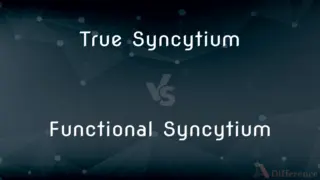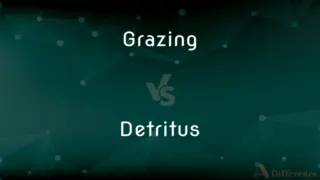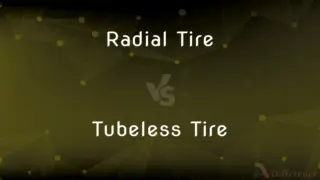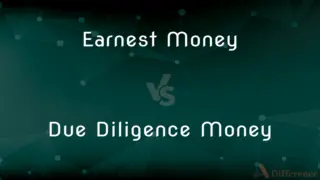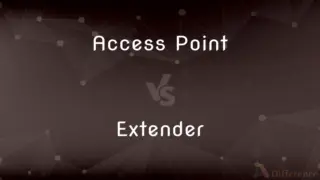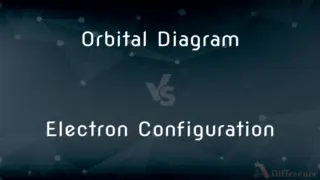Forgive vs. Pardon — What's the Difference?
By Urooj Arif & Maham Liaqat — Updated on May 13, 2024
"Forgive" involves releasing personal resentment or anger towards someone for a wrong, while "pardon" is often a formal act, absolving someone from legal penalties.

Difference Between Forgive and Pardon
Table of Contents
ADVERTISEMENT
Key Differences
"Forgive" is primarily an emotional and personal process where an individual decides to let go of negative feelings caused by someone else’s actions. Whereas, "pardon" generally refers to a legal exoneration where a person is officially relieved from the consequences of an offense.
Forgiveness does not necessarily remove the consequences of an action and can occur privately, within the context of personal relationships. On the other hand, a pardon typically comes from a figure of authority, like a government official, and it does remove legal consequences.
To forgive someone can be a part of healing and moving forward, emphasizing reconciliation. Conversely, to pardon someone often focuses on the formal or public aspects of justice and can be seen as a gesture of mercy or public policy.
While forgiveness can be granted without an apology or acknowledgment of wrongdoing by the offender, pardons usually involve a formal process that might include such acknowledgments or a review of the case.
In terms of applicability, anyone can choose to forgive, regardless of the nature of the offense, whereas pardons are usually reserved for specific legal contexts and often require a particular procedure.
ADVERTISEMENT
Comparison Chart
Definition
Emotional release of resentment or anger
Legal exoneration from penalties
Authority
Can be given by anyone
Given by a legal or governmental authority
Consequence Removal
Does not remove consequences of actions
Removes legal consequences
Process
Personal and informal
Formal and procedural
Focus
Reconciliation and personal peace
Legal mercy and justice
Compare with Definitions
Forgive
To grant pardon for or remission of something.
He forgave the debt that his friend owed him.
Pardon
An act of officially releasing someone from punishment or legal consequences.
The president granted a pardon to the whistleblower.
Forgive
To excuse a fault or an offense.
I hope you can forgive my interruptions.
Pardon
A declaration that someone is not guilty of a crime.
His name was cleared when he received a pardon.
Forgive
To give up all claim on account of an offense or debt.
She forgave her brother's offenses.
Pardon
Forgiveness for a wrongdoing.
He begged for her pardon after the accident.
Forgive
To stop feeling angry or resentful toward someone for an offense or flaw.
She decided to forgive her friend for the misunderstanding.
Pardon
A pardon is a government decision to allow a person to be relieved of some or all of the legal consequences resulting from a criminal conviction. A pardon may be granted before or after conviction for the crime, depending on the laws of the jurisdiction.Pardons can be granted in many countries when individuals are deemed to have demonstrated that they have "paid their debt to society", or are otherwise considered to be deserving of them.
Forgive
Stop feeling angry or resentful towards (someone) for an offence, flaw, or mistake
I'll never forgive David for the way he treated her
Pardon
The action of forgiving or being forgiven for an error or offence
He obtained pardon for his sins
Forgive
To give up resentment against or stop wanting to punish (someone) for an offense or fault; pardon.
Pardon
Forgive or excuse (a person, error, or offence)
I know Catherine will pardon me
Forgive
To relent in being angry or in wishing to exact punishment for (an offense or fault).
Pardon
A request to a speaker to repeat something because one did not hear or understand it
‘Pardon?’ I said, cupping a hand to my ear
Forgive
To absolve from payment of (a debt, for example).
Pardon
To release (a person) from punishment or disfavor for wrongdoing or a fault
A convicted criminal who was pardoned by the governor.
Forgive
To grant forgiveness.
Pardon
To allow (an offense or fault) to pass without punishment or disfavor.
Forgive
(transitive) To pardon; to waive any negative feeling or desire for punishment, retribution, or compensation.
Please forgive me if my phone goes off - I'm expecting an urgent call from my boss.
Forgive others, not because they deserve forgiveness, but because you deserve peace.
Forgive a debt, that is, tell a debtor that a repayment of a loan is no longer needed.
Pardon
To make courteous allowance for; excuse
Pardon me, I'm in a hurry.
Forgive
(intransitive) To accord forgiveness.
Pardon
The act of pardoning.
Forgive
To give wholly; to make over without reservation; to resign.
To them that list the world's gay shows I leave,And to great ones such folly do forgive.
Pardon
Exemption of a convicted person from the penalties of an offense or crime by the power of the executor of the laws.
Forgive
To give up resentment or claim to requital on account of (an offense or wrong); to remit the penalty of; to pardon; - said in reference to the act forgiven.
And their sins should be forgiven them.
He forgive injures so readily that he might be said to invite them.
Pardon
An official document or warrant declaring such an exemption.
Forgive
To cease to feel resentment against, on account of wrong committed; to give up claim to requital from or retribution upon (an offender); to absolve; to pardon; - said of the person offending.
Father, forgive them; for they know not what they do.
I as free forgive you, as I would be fforgiven.
Pardon
Allowance or forgiveness for an offense or a discourtesy
Begged the host's pardon for leaving early.
Forgive
Stop blaming or grant forgiveness;
I forgave him his infidelity
She cannot forgive him for forgetting her birthday
Pardon
Roman Catholic Church An indulgence.
Forgive
Absolve from payment;
I forgive you your debt
Pardon
Forgiveness for an offence.
Forgive
To grant relief from payment.
The bank decided to forgive the late fees.
Pardon
(legal) An order that releases a convicted criminal without further punishment, prevents future punishment, or (in some jurisdictions) removes an offence from a person's criminal record, as if it had never been committed.
Pardon
(transitive) To forgive (a person).
Pardon
(transitive) To refrain from exacting as a penalty.
Pardon
To grant an official pardon for a crime.
Pardon
Often used when someone does not understand what another person says.
Pardon
The act of pardoning; forgiveness, as of an offender, or of an offense; release from penalty; remission of punishment; absolution.
Pardon, my lord, for me and for my tidings.
But infinite in pardon was my judge.
Pardon
An official warrant of remission of penalty.
Sign me a present pardon for my brother.
Pardon
The state of being forgiven.
Pardon
A release, by a sovereign, or officer having jurisdiction, from the penalties of an offense, being distinguished from amnesty, which is a general obliteration and canceling of a particular line of past offenses.
Pardon
To absolve from the consequences of a fault or the punishment of crime; to free from penalty; - applied to the offender.
In this thing the Lord pardon thy servant.
I pray you, pardon me; pray heartily, pardon me.
Pardon
To remit the penalty of; to suffer to pass without punishment; to forgive; - applied to offenses.
I pray thee, pardon my sin.
Apollo, pardonMy great profaneness 'gainst thine oracle!
Pardon
To refrain from exacting as a penalty.
I pardon thee thy life before thou ask it.
Pardon
To give leave (of departure) to.
Even now about it! I will pardon you.
Pardon
The act of excusing a mistake or offense
Pardon
A warrant granting release from punishment for an offense
Pardon
The formal act of liberating someone
Pardon
Accept an excuse for;
Please excuse my dirty hands
Pardon
Grant a pardon to;
Ford pardoned Nixon
The Thanksgiving turkey was pardoned by the President
Pardon
To allow courteously.
Pardon me, could you please repeat that?
Pardon
A document or statement officially stating that someone has been pardoned.
The governor signed the pardon just hours before the execution.
Common Curiosities
Is a pardon the same as an acquittal?
No, a pardon forgives a conviction, whereas an acquittal finds the defendant not guilty.
Can anyone issue a pardon?
No, only a person with legal or executive authority can grant a pardon.
Can a pardon be revoked?
Generally, once granted, pardons are irreversible, but this can depend on the jurisdiction.
What is required for a person to receive a pardon?
Typically, a review of the case by a legal authority or a governmental figure is required.
What does it mean to forgive someone?
To forgive someone means to let go of resentment and thoughts of revenge.
Can forgiveness affect one's health?
Yes, forgiving others can lead to lower stress and better mental health.
What are the benefits of forgiving someone?
Benefits include improved relationships and greater personal peace.
Is forgiveness a decision or an emotion?
Forgiveness can be both a conscious decision and an emotional process.
Does a pardon erase a criminal record?
It does not erase a criminal record but typically restores rights and removes legal liabilities.
What does it mean to pardon someone in everyday language?
It often means to excuse a minor mistake or faux pas.
Share Your Discovery

Previous Comparison
Pantheism vs. Panentheism
Next Comparison
Bundle vs. PackAuthor Spotlight
Written by
Urooj ArifUrooj is a skilled content writer at Ask Difference, known for her exceptional ability to simplify complex topics into engaging and informative content. With a passion for research and a flair for clear, concise writing, she consistently delivers articles that resonate with our diverse audience.
Co-written by
Maham Liaqat






















